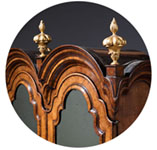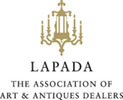18th Century George III Chinoiserie Japanned Wardrobe, Chippendale Period, C1770
Sold
Request Information
Follow Us
18th Century George III Chinoiserie Japanned Wardrobe, Chippendale Period, C1770
A superb and rare George III solid oak chinoiserie decorated wardrobe or estate cupboard, circa 1770. England
This extraordinary and unusual piece was possibly designed as a campaign piece, for somebody who travelled or simply to negotiate stairs because, despite its scale, it can be totally ‘flat packed’ with ease but when it is assembled, it is as robust and durable as any one-piece wardrobe due to the fantastic design.
The full-length raised and fielded panelled solid oak doors are each beautifully decorated in differing typical chinoiserie scenes incorporating elephants, birds, fishing, insects, trees, flowers, boats, harvests, people and dwellings; Opening to reveal a fitted interior. To the left side, dovetail housed shelves slide in to become part of the superstructure, above three graduating solid oak drawers. The right-hand side is fitted with oak pegs presumably for coats. (An appropriate hanging rail can be fitted on request)
The detachable dental moulded cornice surmounts the wardrobe beautifully which is raised on a detachable moulded base and bracket feet concealing period casters.
Each solid oak well-patinated side is fitted with three tenons to the bottom and three to the top. The tenons slot into the cornice and the base.
The raised and fielded two-piece solid oak back is also beautifully made and slots together with a lap-joint to the centre ensuring that it is sealed. This detail in itself displays that the piece was made with a vast knowledge of cabinetwork and with an understanding. In my opinion, the piece was made in such a way to compensate for the change in climate should it be transported to India or Asia.
Due to this piece being so rare and quite possibly unique, I cannot be certain that the chinoiserie was commissioned when the piece was made in England, circa 1770, though, it could well have been. All I can say is that it was decorated in the late 18th or early 19th centuries. I quite like the suggestion that it could have been decorated in India or Asia and belonged to somebody who was part of the East India Company; the scenes could easily be relating to tea or tobacco plantations in the late 18th century.
Chinoiserie entered European art and decoration in the mid-to-late 17th century with French, English, Dutch and Swedish East India Company ships bringing masses of Chinese and Indian goods into Europe. The popularity of chinoiserie peaked circa 1750 when it was associated with rococo fashion; Thomas Chippendale, Giles Grendey and John Belchier all adopted the fashion.
My notes – It is a charming and original piece of very good colour and is extremely well patinated throughout.
Condition
Good. Wear consistent with age and use.
Dimensions
Height: 215 cm
Width: 132 cm
Depth: 51 cm
PREVIOUSLY SOLD
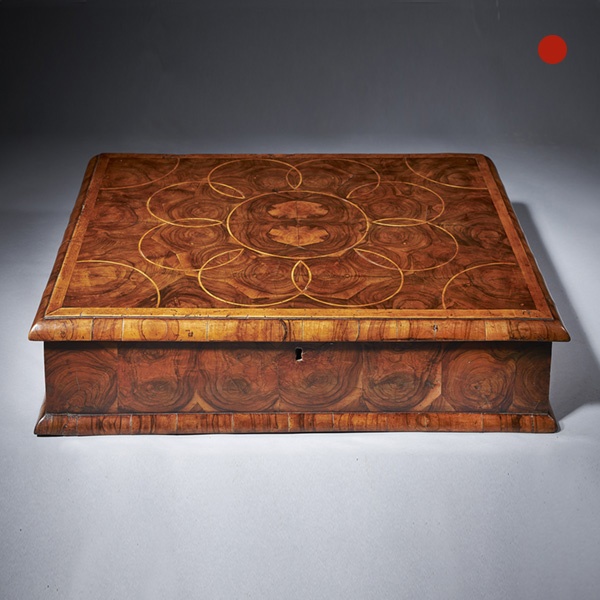
Fine and Rare Late 17th Century William and Mary Olive Oyster Lace Box
Fine and Rare Late 17th Century William and Mary Olive Oyster Lace Box Sold Follow UsFine and Rare Late 17th Century William and Mary Olive Oyster Lace Box A fine and rare late 17th century olive oyster 'lace box from the reign of King...
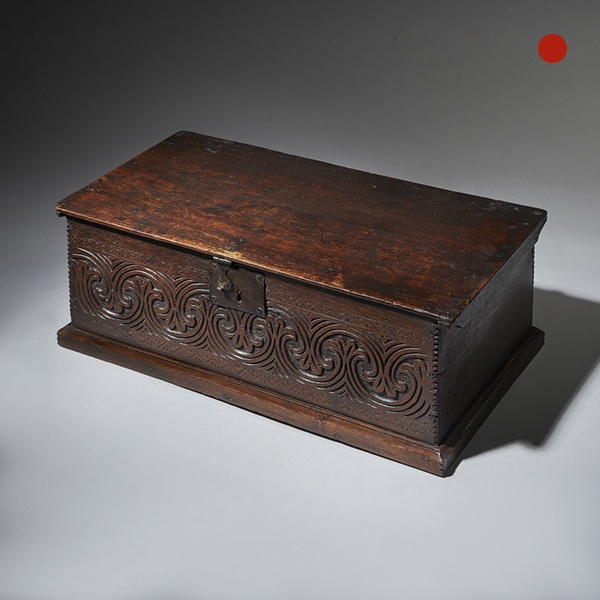
Late 17th Century Charles II Carved Oak Bible Box, Deed Box, Blanket Box,or Candle Box
Late 17th Century Charles II Carved Oak Bible Bo, Deed, Blanket, or Candle Box Sold Follow UsLate 17th Century Charles II Carved Oak Bible, Deed, Blanket, or Candle Box A superb and original late 17th century oak box with excellent and deep...
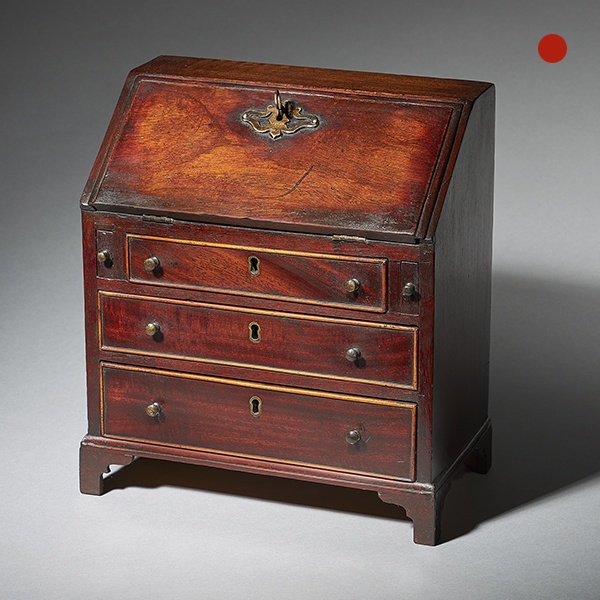
18th Century George II Mahogany Miniature Bureau
18th Century George II Mahogany Miniature Bureau SOLD Follow Us18th Century George II Mahogany Miniature Bureau What came first.... the miniature or the full scale? This small scale model at just 9” wide dates from the very beginning of the...
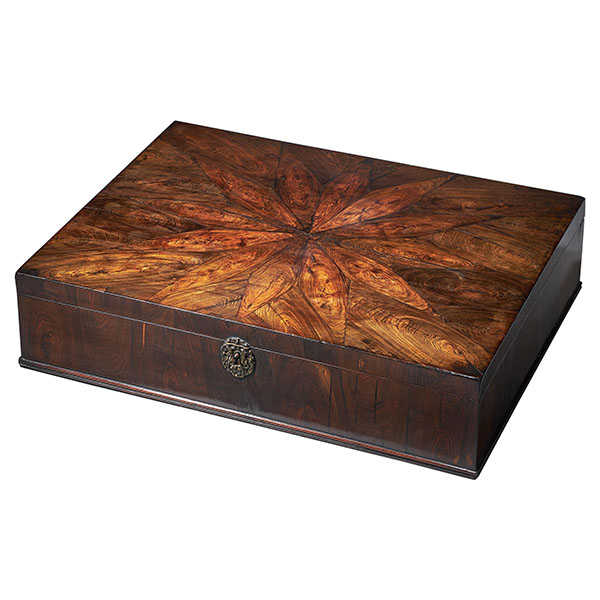
17th Century Charles II Cocuswood Lace Box, Circa 1660, England
17th Century Charles II Cocuswood Lace Box, Circa 1660, England SoldFollow Us17th Century Charles II Cocuswood Lace Box, Circa 1660, England An extremely rare and important Cocuswood oyster (Brya ebenus) lace box from the reign of Charles II,...
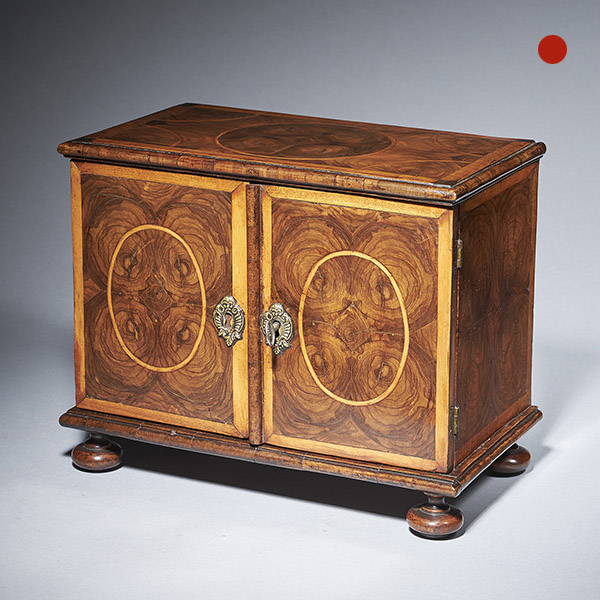
17th-Century miniature table cabinet
The miniature table cabinet opens to an arrangement of drawers, a row of four, a bank of four and a long pen drawer, similarly veneered in oysters of olive.
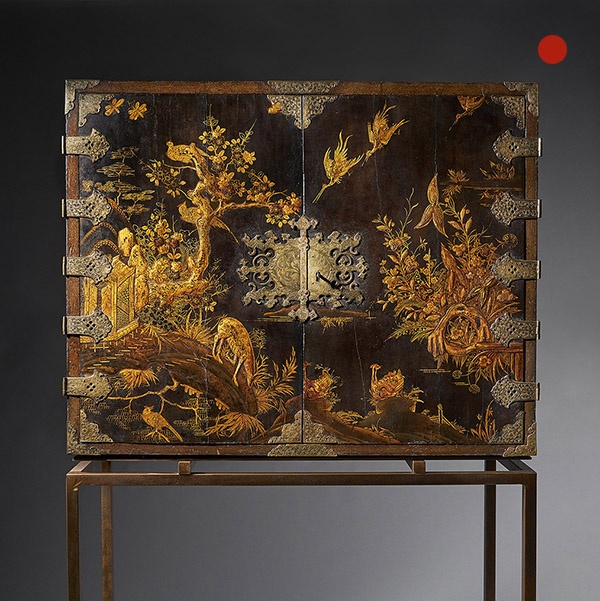
Charles II Japanned Cabinet of exceptional condition c. 1675 raised on a contemporary stand.
Charles II Japanned Cabinet of exceptional condition c. 1675 raised on a contemporary stand SOLD Follow UsCharles II Japanned Cabinet of exceptional condition c. 1675 raised on a contemporary stand An English Charles II Japanned cabinet of...

Fine and Rare Late 17th Century William and Mary Olive Oyster Lace Box
Fine and Rare Late 17th Century William and Mary Olive Oyster Lace Box Sold Follow UsFine and Rare Late 17th Century William and Mary Olive Oyster Lace Box A fine and rare late 17th century olive oyster 'lace box from the reign of King...

Late 17th Century Charles II Carved Oak Bible Box, Deed Box, Blanket Box,or Candle Box
Late 17th Century Charles II Carved Oak Bible Bo, Deed, Blanket, or Candle Box Sold Follow UsLate 17th Century Charles II Carved Oak Bible, Deed, Blanket, or Candle Box A superb and original late 17th century oak box with excellent and deep...

18th Century George II Mahogany Miniature Bureau
18th Century George II Mahogany Miniature Bureau SOLD Follow Us18th Century George II Mahogany Miniature Bureau What came first.... the miniature or the full scale? This small scale model at just 9” wide dates from the very beginning of the...

17th Century Charles II Cocuswood Lace Box, Circa 1660, England
17th Century Charles II Cocuswood Lace Box, Circa 1660, England SoldFollow Us17th Century Charles II Cocuswood Lace Box, Circa 1660, England An extremely rare and important Cocuswood oyster (Brya ebenus) lace box from the reign of Charles II,...

17th-Century miniature table cabinet
The miniature table cabinet opens to an arrangement of drawers, a row of four, a bank of four and a long pen drawer, similarly veneered in oysters of olive.

Charles II Japanned Cabinet of exceptional condition c. 1675 raised on a contemporary stand.
Charles II Japanned Cabinet of exceptional condition c. 1675 raised on a contemporary stand SOLD Follow UsCharles II Japanned Cabinet of exceptional condition c. 1675 raised on a contemporary stand An English Charles II Japanned cabinet of...
YOU MAY ALSO LIKE
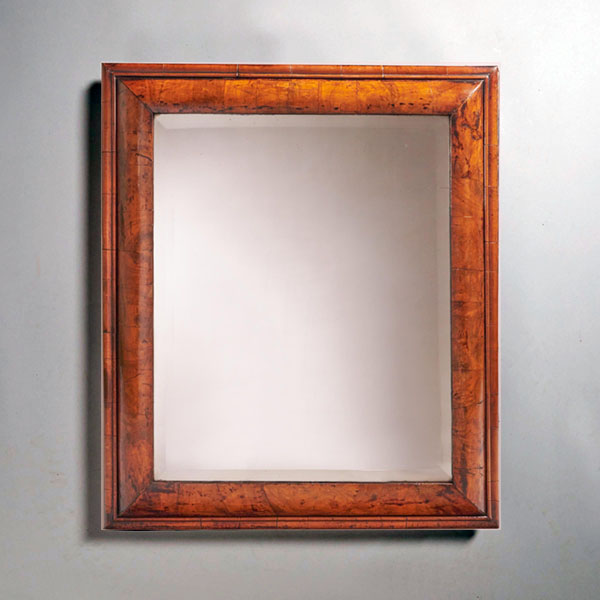
A Fine William and Mary 17th Century Figured Walnut Cushion Mirror C, 1690
A Fine William and Mary 17th Century Figured Walnut Cushion Mirror C, 1690 £6,500Follow UsA Fine William and Mary 17th Century Figured Walnut Cushion Mirror C, 1690 A large William and Mary 17th century figured walnut cushion mirror, circa...
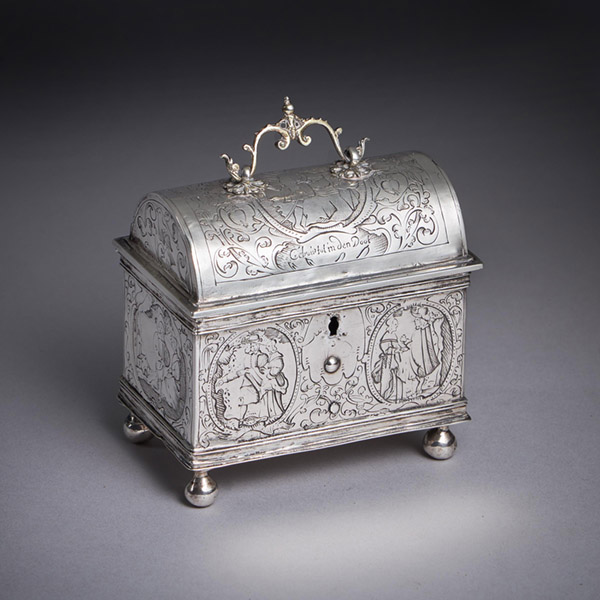
A museum-grade mid-17th century Dutch silver marriage casket or knottekistje, circa 1660
A museum-grade mid-17th century Dutch silver marriage casket or knottekistje, circa 1660 £9,500 [wpforms_selector form_id="11387" show_title="on" _builder_version="4.22.1" _module_preset="default" custom_margin="-30px||||false|false"...
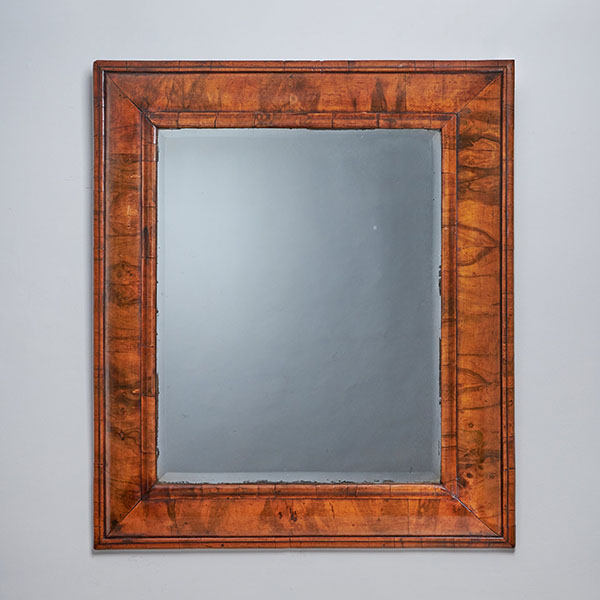
Large William and Mary 17th Century Figured Walnut Cushion Mirror c, 1690
Large William and Mary 17th Century Figured Walnut Cushion Mirror c, 1690 £7,495[wpforms_selector form_id="11387" show_title="on" _builder_version="4.22.1" _module_preset="default" custom_margin="-30px||||false|false" global_colors_info="{}"...
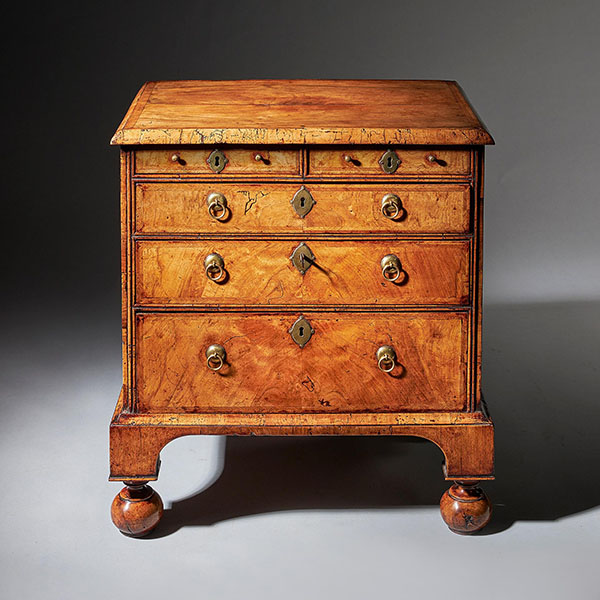
An extremely rare George I walnut chest of small proportions on ball and bracket
An extremely rare George I walnut chest of small proportions on ball and bracket £18,800[wpforms_selector form_id="11387" show_title="on" _builder_version="4.22.1" _module_preset="default" custom_margin="-30px||||false|false"...
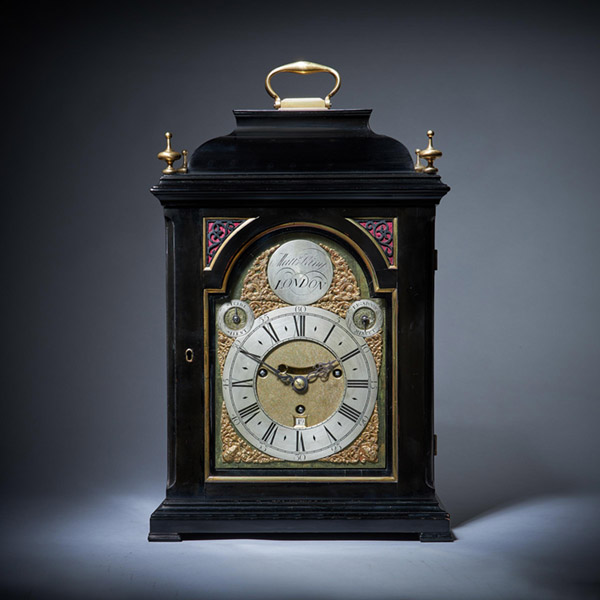
A Rare 18th Century George II Musical Table Clock by Matthew King, c. 1735.
A Rare 18th Century George II Musical Table Clock by Matthew King, c. 1735. £24,500[wpforms_selector form_id="11387" show_title="on" _builder_version="4.22.1" _module_preset="default" custom_margin="-30px||||false|false"...
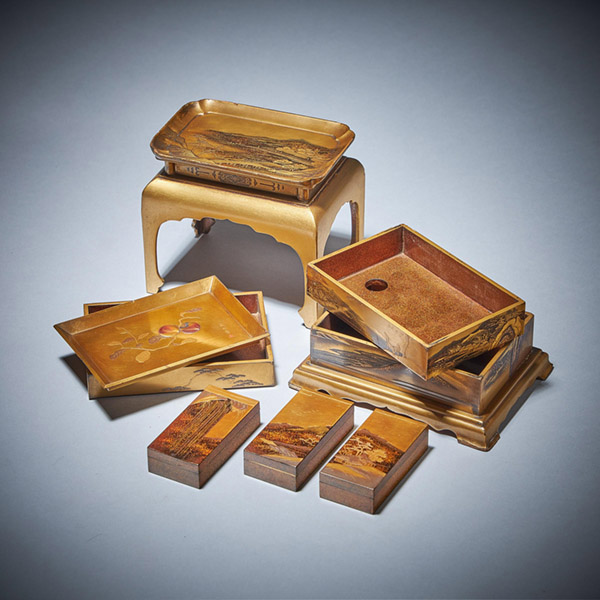
Signed Mid 19th C. Edo/Meiji Period Diminutive Lacquer Stacking Cabinet, Japan
Signed Mid 19th C. Edo/Meiji Period Diminutive Lacquer Stacking Cabinet, Japan £5,800[wpforms_selector form_id="11387" show_title="on" _builder_version="4.22.1" _module_preset="default" custom_margin="-30px||||false|false"...

A Fine William and Mary 17th Century Figured Walnut Cushion Mirror C, 1690
A Fine William and Mary 17th Century Figured Walnut Cushion Mirror C, 1690 £6,500Follow UsA Fine William and Mary 17th Century Figured Walnut Cushion Mirror C, 1690 A large William and Mary 17th century figured walnut cushion mirror, circa...

A museum-grade mid-17th century Dutch silver marriage casket or knottekistje, circa 1660
A museum-grade mid-17th century Dutch silver marriage casket or knottekistje, circa 1660 £9,500 [wpforms_selector form_id="11387" show_title="on" _builder_version="4.22.1" _module_preset="default" custom_margin="-30px||||false|false"...

Large William and Mary 17th Century Figured Walnut Cushion Mirror c, 1690
Large William and Mary 17th Century Figured Walnut Cushion Mirror c, 1690 £7,495[wpforms_selector form_id="11387" show_title="on" _builder_version="4.22.1" _module_preset="default" custom_margin="-30px||||false|false" global_colors_info="{}"...

An extremely rare George I walnut chest of small proportions on ball and bracket
An extremely rare George I walnut chest of small proportions on ball and bracket £18,800[wpforms_selector form_id="11387" show_title="on" _builder_version="4.22.1" _module_preset="default" custom_margin="-30px||||false|false"...

A Rare 18th Century George II Musical Table Clock by Matthew King, c. 1735.
A Rare 18th Century George II Musical Table Clock by Matthew King, c. 1735. £24,500[wpforms_selector form_id="11387" show_title="on" _builder_version="4.22.1" _module_preset="default" custom_margin="-30px||||false|false"...

Signed Mid 19th C. Edo/Meiji Period Diminutive Lacquer Stacking Cabinet, Japan
Signed Mid 19th C. Edo/Meiji Period Diminutive Lacquer Stacking Cabinet, Japan £5,800[wpforms_selector form_id="11387" show_title="on" _builder_version="4.22.1" _module_preset="default" custom_margin="-30px||||false|false"...
